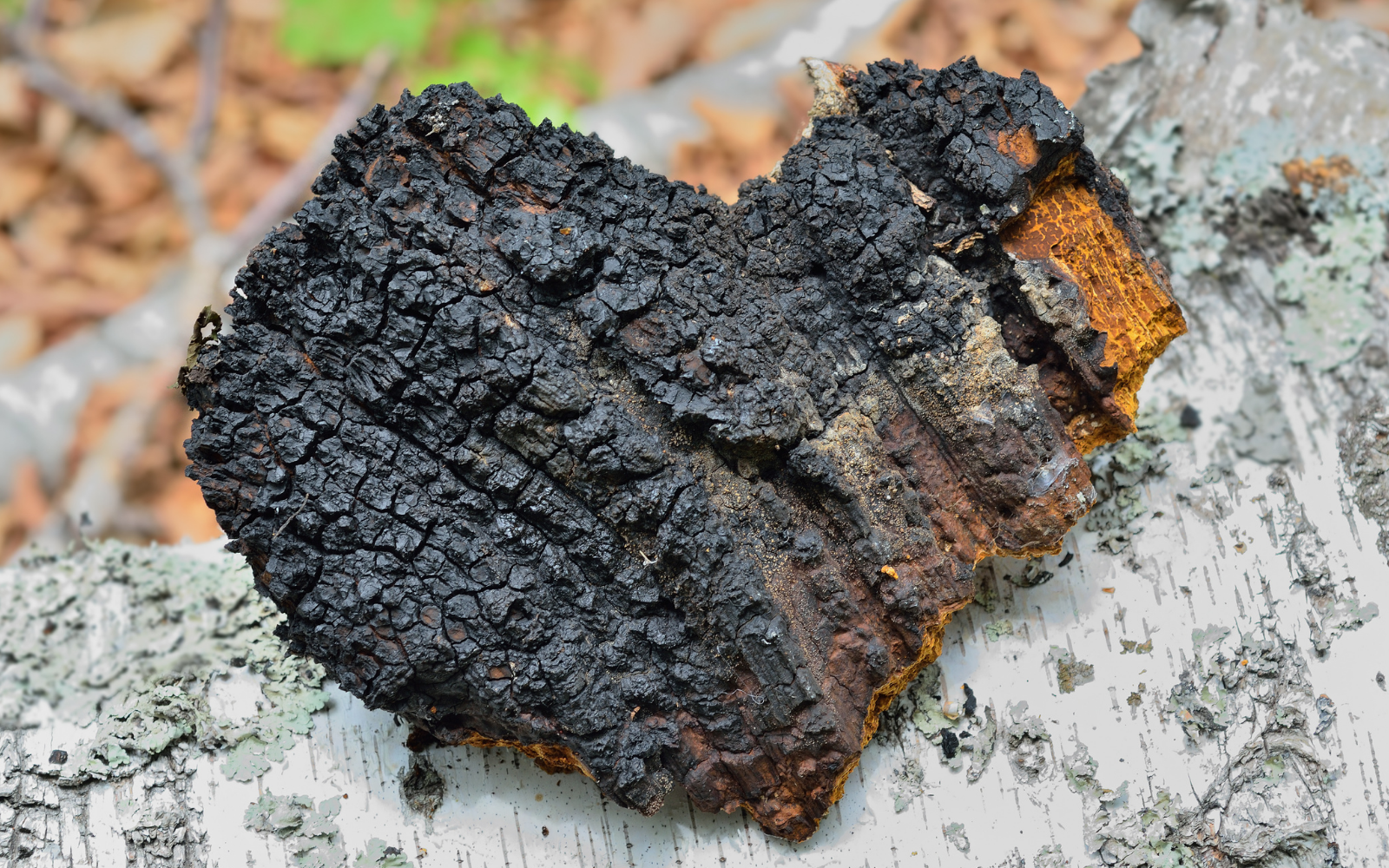Turkey Tail (otherwise known as Trametes versicolor) is one of the most studied, the most storied, and the most ancient of all the medicinal mushrooms. It’s also the one you’re most likely to see on a short jaunt through the forest. And even though the mushroom itself is quite common, the benefits and amazing medicinal properties of this mushroom are anything but common. When it comes to medicinal mushrooms, Turkey Tail is in a league of its own.
What Is Turkey Tail?
The scientific name for Turkey Tail is “Trametes versicolor”, with trametes meaning “one who is thin” and versicolor meaning "variously colored." It is a thin shelf mushroom that grows in the forest on dead or dying logs. Turkey Tail is a “polypore” mushroom meaning instead of gills, it has pores under the cap as a way to disperse its spores. The cap of the mushroom has alternating zones or “striations” of color ranging from white to brown and sometimes even hues of blue. The fruiting body actually does kind of look like a turkey’s tail, which is of course why it’s called Turkey Tail. Turkey Tail has a long history of use, and has been used for medicinal purposes for thousands of years*. It became more popular recently after a 2011 Ted Talk by famed mycologist Paul Stamets, where he tells the story of his mother’s battle with cancer and the amazing powers of Turkey Tail*. If you haven’t seen it, it’s worth a watch. Turkey Tail is not a gourmet mushroom. It is tough and woody and needs to be thoroughly extracted in hot water in order for the beneficial compounds to become bio-available.

How Is Turkey Tail Used?
Turkey Tail contains a super high concentration of beneficial beta-d glucans, specialized polysaccharides that can
interact with our immune system in a very powerful way. Those compounds are typically “locked up” inside the cell wall of the mushroom fruiting body, and need to be pulled out through a hot water extraction. Traditionally, this was achieved by simply making a tea out of dried slices of Turkey Tail mushroom fruiting body. It is also available commercially, where hot water extractions are performed in large vats before the liquid is spray dried into a fine powder. This powder can be packed into
capsules, or simply added to food or drinks. Turkey Tail is quite palatable, and doesn’t have the extreme bitterness of some of the other medicinal mushrooms.

Compounds In Turkey Tail
As mentioned above, Turkey Tail has a high concentration of beneficial beta-d glucans, higher than any other medicinal mushroom. Beta-d glucans are a special polysaccharide that can support and modulate our immune systems. In fact, the human immune system is hard wired to react to fungal polysaccharides, including those found in Turkey Tail. That is why Turkey Tail is considered a “biological response modifier”. It is used to support both overactive and under-active immune system function*.
PSP and PSK
There are two particularly interesting protein-bound polysaccharides that have been isolated from different strains of Turkey Tail, notably PSP (polysaccharide peptide) and PSK (polysaccharide-k, otherwise known as “Krestin”). PSK was discovered in the 1960s in Japan and PSP was isolated in China in the 1980s. These compounds have been studied for their ability to
support the immune system and alleviate the side effects of chemotherapy*. A published review found that: “
PSK and PSP boosted immune cell production, ameliorated chemotherapy symptoms, and enhanced tumor infiltration by dendritic and cytotoxic T-cells*. Their extremely high tolerability, proven benefits to survival and quality of life, and compatibility with chemotherapy and radiation therapy makes them well suited for cancer management regimens*.” <1>
Turkey Tail For Gut Health
Turkey Tail has also traditionally been used for gut health*. Studies have shown that Turkey Tail, more specifically PSP, has a prebiotic effect and has been shown to modify human fecal microbiota composition*. <
2> Another study looked to compare the effects of PSP to those of the antibiotic amoxicillin on the human gut microbiome*. <
3> It found that “
PSP from T. versicolor acts as a prebiotic to modulate human intestinal microbiome composition*.”
Turkey Tail as An Antioxidant
Turkey Tail also contains an impressive array of antioxidants including phenols and flavonoids. One study identified a total of 38 phenolic compounds. <
4>
“These findings have demonstrated considerable potential of T. versicolor water extract as a natural source of antioxidants*.”
Turkey Tail mushroom is also commonly used for dogs*. There are products specifically for dogs that contain high dose PSP*. One double-blind randomized multidose pilot study found that “
high dose PSP significantly delayed the progression of metastases and afforded the longers survival times reported in canine hemangiosarcoma*.” <
5>




